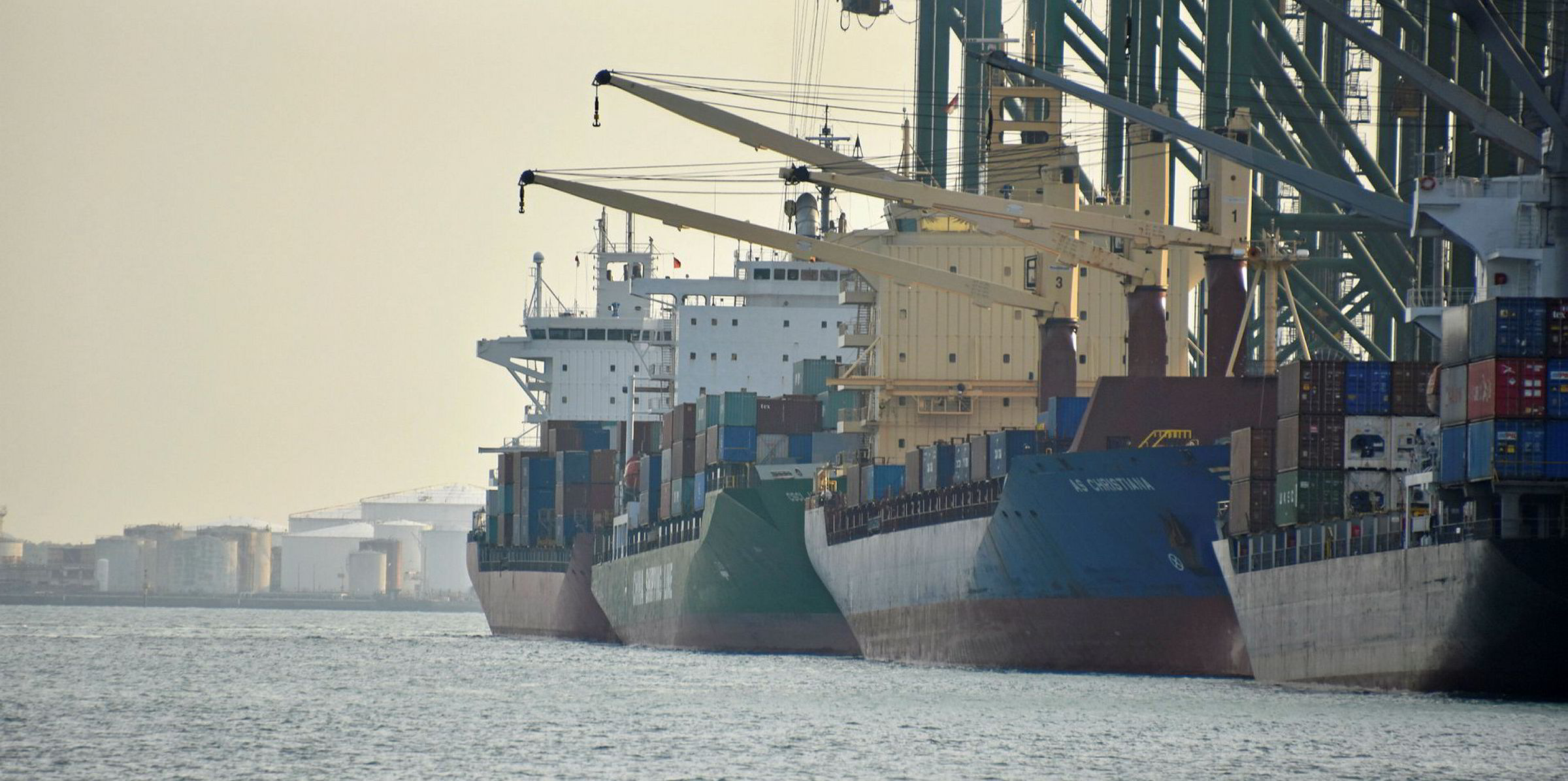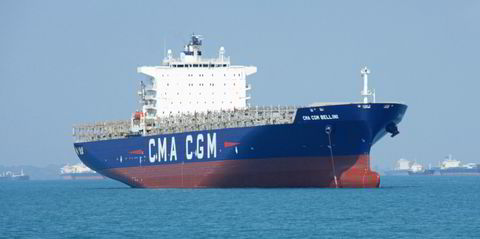The coronavirus pandemic will speed up the transformation of shipping with technological changes that might otherwise have taken a decade to happen.
Investment banker Paul Cuatrecasas, the founder and chief executive of ‘techquisition’ firm Aquaa Partners with clients in the transport sector, believes shipping — particularly big container lines and bulker owners — will become all the more ripe for disruption as a result of the Covid-19 outbreak.
'Severe' disruption'
“It is an industry sector that is going to be severely disrupted over the next 10 years — but now I think with the coronavirus that may accelerate dramatically, and I would say that is looking more like five to seven years,” he said in a conference call briefing, which was originally going to be a face-to-face meeting prior to virus restrictions.
TradeWinds e-paper gives you access to the weekly print edition in digital form. You'll also find an archive of previous editions, and copies of TW+, from the leading international shipping news provider.
You can access our e-paper by clicking this link
Cuatrecasas defined techquisition as the science of technology company acquisition and is the author of 'Go Tech, or Go Extinct' — a book published late last year that is subtitled 'how acquiring tech disruptors is the key to survival and growth for established companies'.
E-commerce is being massively boosted by the spread of the respiratory disease, which has caused much of the world to go into lockdown, he said, with forecasts suggesting it will leap from 14% of the market to 68% by 2030.
“The real question comes down to what is the materials mix [cargo] in ships if there is a 10% to 20% reduction over time,” he said.
“What does that mean for shipping businesses that are already suffering from a cash flow and profit perspective? They have been under pressure for many years and if these companies cannot survive, then who is going to be doing the shipping?”
Cuatrecasas believes the delivery of goods will be transformed by the development of long-distance heavylift drones — with models able to carry up to 90 tonnes or fly 75 km now being tested — and the potential of carriers such as SpaceX to move products in hours rather than weeks.
Potential game changers
These developments, alongside an increasing ability to 3D-print materials and assemble products locally and the ability of manufacturers to switch production to goods such as ventilators that are needed now due to the virus, are all potential game changers.
He cited the ability of tech companies to better survive economic shock because of their higher earnings, comparing AP Moller-Maersk’s $175,000 market capitalisation per employee with freight software firms of up to $3m per employee.
“The best way to adjust to this new era of not just remote working but disruption and becoming resilient is to find the right technology companies, the right software companies, the right platform, the right drone companies — whatever the right fit is within their value chain,” he said.

“The key is to make a significant investment, joint venture or acquisition and work with that tech company and its people to accelerate the adjustment, the change in culture.”
He added that investment in freight technology companies will help existing shipping industry players optimise their operations.
“But optimisation is not transformation,” Cuatrecasas said, and external catalysts are needed to change the way companies do business from what they have always done before.
He cited fast-food chain McDonald’s acquisition last year of software firm Dynamic Yield, with which it was already working, as an example of a move to bring in and keep talented data scientists.
“A Maersk, Hapag-Lloyd, [or] Port of Rotterdam — any of the large players last year — are going to struggle on a standalone basis to recruit top talent, when the alternative is a Google or Amazon, SAP or Uber, or a sexy cargo drone company that is very well backed with VC [venture capital] money and offering options,” Cuatrecasas said.
“Even if you are a Maersk and you have recruited a couple of really good people able to develop systems around optimisation of the ships and container systems, give it six months before they are picked off by a Google or an Amazon or a start-up company with VC cash.”
Autonomous technology
Autonomous vessels will be important. Cuatrecasas cited General Motor's $1bn acquisition of Cruise Automation, a company with 25 employees and zero revenues, as an example of a traditional car manufacturer seeing the need to transform into a leader in developing self-driving vehicles.
So far, technology companies have not taken over shipping lines because they can grow without owning the heavy assets, but Cuatrecasas added that an economic crash resulting from Covid-19 could push their prices low enough that they see an opportunity to use venture capital backing to buy and transform them.






